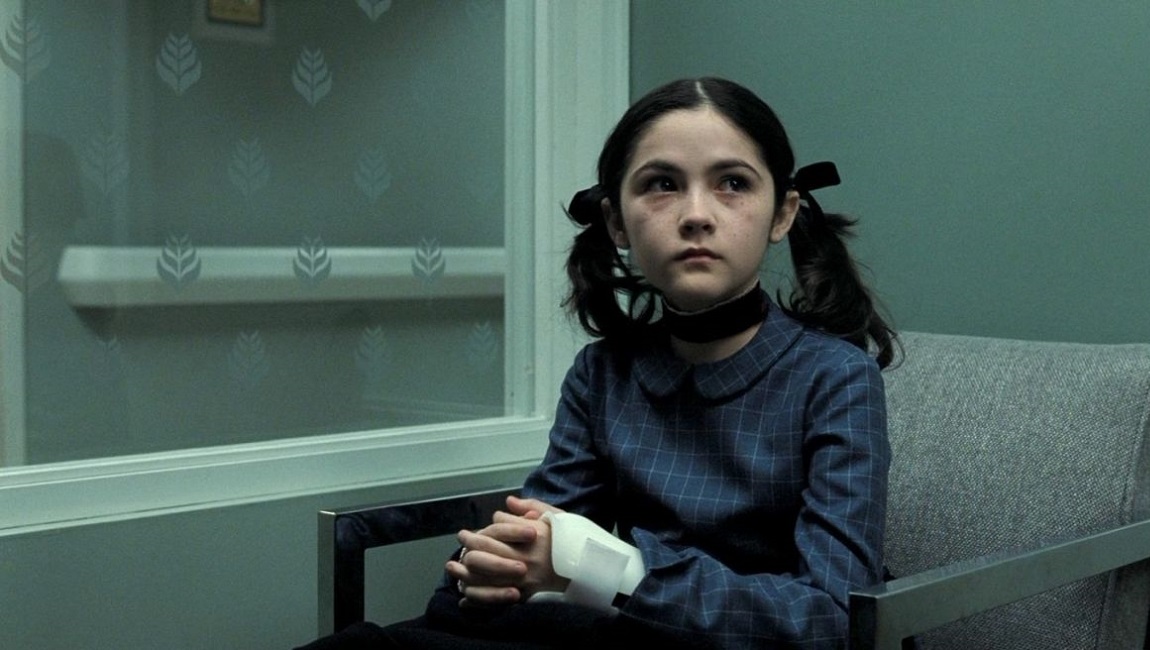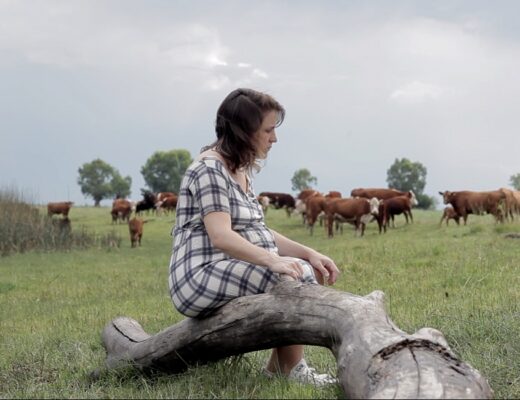Orphan is a nasty, unpleasant movie, filled with predictable plot turns, one-dimensional characters, and some really lousy dialogue — but it’s also a lot of fun. Call it a guilty pleasure, but Orphan’s unyielding commitment to capturing demented family dynamics and repressed upper-middle-class angst makes it stand out in a crowded field. It pushes the envelope, and it’s never boring. Fueled by a strong performance from Vera Farmiga as a mother on the edge of sanity — and starring opposite a really creepy little girl — Orphan brims with B-movie energy that reminds of the great bad-movies of days past. Think flicks like The Temp with Lara Flynn Boyle, Sliver with Sharon Stone, and Anaconda with a fake underwater snake. Despite aversion to logic and good taste, these movies crackle with more enthusiasm and oomph than your standard Hollywood thrill-fest. Orphan applies this same verve as the latest in the “kid-from-hell” subgenre, which already includes “classics” like The Bad Seed, Village of the Damned, and The Omen.
Although Orphan certainly isn’t as good as any of these, we know this movie means business from the opening scene: A bloody hospital nightmare with a disturbingly surreal bent that owes more than a tip of the hat to Roman Polanski and Rosemary’s Baby. Orphan centers on Kate (Farmiga) and John (Peter Sarsgaard) Coleman, an upper-middle-class Connecticut couple looking for love in all the wrong places. They live in a gorgeous glass house with their two kids: Daniel, a disgruntled teen-in-training, and Max, a sweet deaf girl. They try their best to be a happy family, but they’re not — and things are going to get a lot worse. Traumatized by the memories of the baby she lost during childbirth, Kate pops pills and struggles to get through the day; John exists in what appears to be a stoner haze without any drugs, just acting confused and walking on eggshells 24-7; and both drift through life waiting for something or someone to make a difference.
Of course, there’s only one answer to their problems: adopt a kid. So off they go to the local orphanage, where giggling girls and smiling nuns run amok. There, they meet pale, freckle-faced Esther (Isabelle Fuhrman), who’s different from the other girls; she has a Russian accent, Victorian-era duds, and advanced painting skills. Little Esther comes across as offbeat and odd, just what Kate is looking for since she feels like an outsider too, and just wants to “give love to someone who really needs it.” Next thing you know, Esther is the newest member of the Coleman family and, of course, all hell breaks loose. In this case, hell includes pigeon torture, a runaway car, a flaming treehouse, and the mysterious case of the missing nun. Soon, it becomes clear that Esther needs a time out. And as the movie surges forward, each scene more dramatic than the last, Esther and her new family devolve into crazed maniacs in search of love and blunt objects to protect themselves.
This all culminates in a twist ending that is truly twisted and will melt plenty of viewers’ brains. But what makes the R-rated Orphan different, and better, than lots of PG-13 horror movies being released these days is that these filmmakers don’t hold back. Sex and violence ooze from the screen with no apology or moralizing, and director Jaume Collet-Serra (House of Wax) wisely keeps the focus on Farmiga and her tremendous performance — even despite her thinly scripted role. The filmmaker’s visual sense is also notable, as he makes a point to captures the snowy, soulless streets of this upscale neighborhood and, in one scene, follows a little girl scurrying through a play structure, with Esther in hot pursuit, beautifully capturing grown-up anxiety in a child’s setting. Fueled by an uneasy, out-of-control energy and several wild surprises, Orphan engages for 2 hours, sure to keep viewers on edge, which is exactly what should be required from a good old-fashioned B-movie.







